Pandemic Religion Contributions
Item Set
Title
Pandemic Religion Contributions
Description
Materials submitted by users to the Pandemic Religion archive.
Items
-
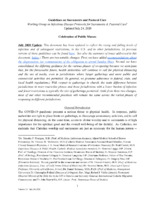
Guidelines on Sacraments and Pastoral Care
These guidelines were issued and updated by the Thomistic Institute, a Catholic academic group based in Washington, D.C., and their Working Group on Infectious Disease Protocols for Sacraments & Pastoral Care . The document continued to respond to the evolving COIVD-19 health crisis that dictated the style and size of masses across the United States. Among other changes, and in contrast to the Federation of Diocesan Liturgical Commissions, the Thomistic Institute believed that priests could resume the placing of communion on the parishioner's tongue. -
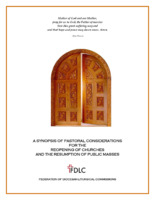
A Synopsis of Pastoral Considerations for the Reopening of Churches and the Resumption of Public Masses
These guidelines were issued by the Federation of Diocesan Liturgical Commissions to help guide American dioceses in the reopening process after the COVID-19 shutdowns. The guidelines attempt to balance the desire for a return to in-person masses and the continued need to follow local public-health mandates. -
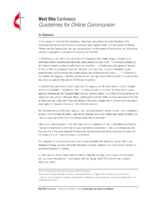
United Methodist Church West Ohio Conference Guidelines for Online Communion
This document set forth guidelines for local United Methodist Churches in the West Ohio Conference on how to conduct virtual communion. These guidelines were issued early on in the COVID-19 pandemic to explain the doctrine of "in extremis," which, according to the guidelines, allowed for digital communion where it had previously been condemned. -
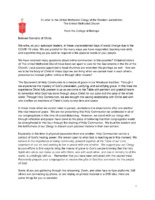
A Letter to the United Methodist Clergy of the Western Jurisdiction From the College of Bishops
This letter from the United Methodist Church's (UMC) College of Bishops was an early response to the shutdowns caused by COVID-19. Specifically, it deals with subject of online communion and provides some initial guidelines to local churches for how best to transition to the virtual world. The Western jurisdiction of the UMC includes churches in Alaska, Arizona, California, Colorado, Hawaii, Idaho, Montana, Nevada, Oregon, Utah, Washington, Wyoming, Guam, and other territory in the Pacific region. -
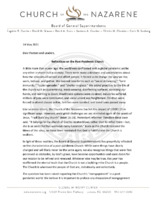
Reflections on a Post-Pandemic Church from the Church of the Nazarene
These reflections were issued by the Board of General Superintendents for the Church of the Nazarene and were meant to guide local churches as they began to regather in person following the relaxing of restrictions regarding social distancing and local gatherings. -
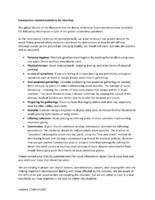
Church of the Nazarene statement on coronavirus and guidelines for local churches
This document was issued in early March by the Church of the Nazarene's Board of General Superintendents following the recognition that the Church was entering a time of "crisis." It gives general outlines for local churches to follow as they entered into a time of quarantine. -
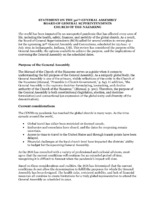
Statement on the 30th General Assembly from the Board of General Superintendents for the Church of the Nazarene
A statement issued by the General Superintendents to the global Church of the Nazarene postponing the General Assembly due to COVID-19. Published in English, Spanish, Portuguese, French, and Korean. -
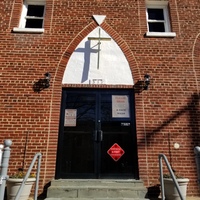
Mount Jezreel Baptist Church
Church has signs that show its COVID-19 response, including masks and social distancing -
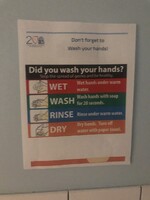
Multiple Signs Posted in St. Peter Church
Multiple signs posted in St. Peter Church to help parishioners observe safety protocol for church gathering. -

The Animals' Christmas: A Drive-Through Live Nativity
On December 23, 2020, St. Anne's Episcopal Church in Reston, Virginia, presented The Animals' Christmas: A Drive-Through Live Nativity experience. From the warmth of one's vehicle, attendees heard the Christmas story told by the youth of the congregation and saw animals we expect to find at the manger. Through scripture, poetry and song - and with the help of a goat, a sheep, an ox, a donkey, and a camel - the youth provided narrated scenes surrounding the birth of Jesus. We had more than 500 attendees in a three-hour window. We learned that in the midst of the pandemic, people were hungry for a Christmas experience - an experience of pageantry and wonder, an experience of joy and hope - that connected with people of all ages. For Christians, Christmas is not only an essential 12-day season celebrating the birth of Jesus, it is an essential part of the Christian story and journey we must experience again and again, every year, as we grow and become more like the one whose birth we celebrate. So, finding a way to safely include so many from our community in the organization and production of such an event, and creating something safe, enjoyable, and meaningful for those who attended, was so important for us to do. -
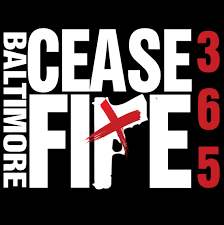
Baltimore Ceasefire 365, Interview #1
Baltimore Ceasefire 365 offers a community based approach to gun violence reduction. Many crime rates have dropped in Baltimore during the pandemic, but gun violence continues. The goal of Baltimore Ceasefire 365 is for everyone in the city to commit to zero murders. We started by calling ceasefire weekends, where we ask everyone to be peaceful and celebrate life. In doing the outreach for ceasefire weekends, residents are: helping each other get the resources they need in their lives, having conversations with each other about how to handle conflict differently, and making commitments to one another to be non-violent in thoughts, words, and deeds, for AT LEAST the ceasefire weekend. When people are killed in Baltimore, we believe that their lives matter. We believe that the places where people are taken by violence should be Sacred Ground. We believe that just like somebody showed up to kill them, people should show up in that same space to send love and light to that person's spirit, to the community, and to their loved ones. During Sacred Space Rituals, people are invited to do whatever they believe will put love and light in the space. Baltimoreans show up to make sure that love has the last say in that space, how much the person matters has the last say in that space, and that murder does not have the last say. Baltimore Ceasefire 365 volunteers who have been trained to facilitate these Rituals are the people who schedule when they happen. Trained facilitators see who has been murdered, and check their calendars to see when they are available to bless the space. The CSRC grant will allow us to provide outreach materials, support families who lose loved ones to violence during ceasefire weekends, and to expand Baltimore's ability to address and heal the root causes and impacts of violence -

Jews United For Justice, Interview #3
The Baltimore chapter of Jews United for Justice, (JUFJ) is a grassroots community that seeks to repair the world by working locally for social, racial, and economic justice. A housing crisis in on the horizon. In this moment of uncertainty, it is critical to make sure our Baltimore City government protects its most vulnerable residents. During this crisis JUFJ, which organizes Jews around local policy issues, is mobilizing our community and using our power to amplify the voices and needs of those most directly impacted by injustice. JUFJ continues to organize for valuable housing protections. With our partners, we won an eviction moratorium to last until 90 days after the crisis. We are working to extend that. Our coalition is also advocated for late fees cancellations, rent rates to be frozen, and for additional money for rental assistance from the state and city government. Thanks in part to our advocacy, 300 of 700 people in the Baltimore shelter system are in hotels. We continue to work with our partners to get everyone using the shelter system into safe housing now. The CSRC grant will help support our efforts to bring about a more just housing system in Baltimore. Additionally, we will partner with the CSRC by providing an internship opportunity for 1-2 Morgan students to work collaboratively with our organization and with our partners: the Public Justice Center to learn about professional careers in organizing, advocacy, and legal support as interconnected activities. -
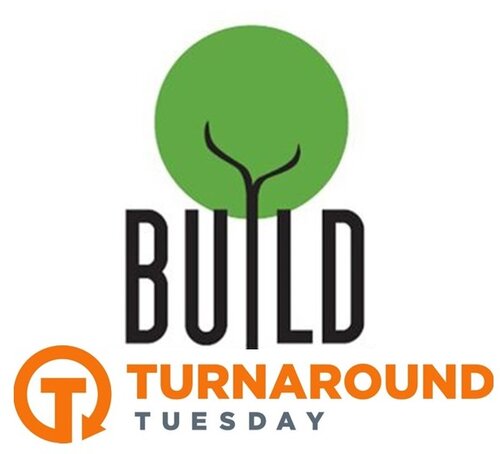
Turnaround Tuesday, Interview 1
Baltimoreans United in Leadership Development (BUILD) is a broad-based, non-partisan, interfaith, multiracial community power organization rooted in Baltimore’s neighborhoods and congregations. Turnaround Tuesday is a jobs movement of the BUILD (Baltimoreans United in Leadership Development) Organization. Over the past five and a half years we have helped over 860 people get livable wage jobs, with a two year retention rate of 83%. Sixty-five percent of the people we serve are ex-offenders. The average hourly rate is $15. Several of our employed participants have now become homeowners. The Covid-19 Pandemic has drastically impacted the people that Turnaround Tuesday serves. Several people have been laid-off or furloughed from their jobs. This has caused a tremendous burden and financial hardship on families. The pandemic has also slowed the potential for employment opportunities for many of the people that we have prepared to go to work. The Turnaround Tuesday staff has remained employed and providing daily contact with our participants and preparing them for opportunities when the pandemic ends. The gaps that will be address with these funds include food and financial emergency support as well as additional Case Management services needed to help people understand and navigate these uncertain times. Many people are experiencing psychological issues and are having difficulties coping. Our Case Manager is a licensed Mental Health Therapist. Turnaround Tuesday had to cease our weekly job readiness sessions and revert to a weekly video session. The CSRC grant will be used to support BUILD’s Turnaround Tuesday Jobs Movement efforts to distribute food, soap, personal protective equipment (PPE) and laptop devices for remote job training during the pandemic. -
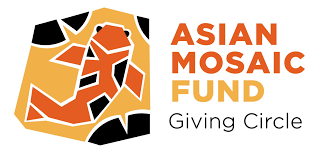
Asian Mosaic Fund, Interview 1
The Asian Mosaic Fund (AMF) is a diverse group of multi-generational supporters committed to advancing the well-being of the Asian American and Pacific Islander communities in Greater Philadelphia. The AMF Giving Circle launched the AAPI Communities Relief & Recovery Fund in partnership with Asian Americans/Pacific Islanders in Philanthropy, Philadelphia Chapter (AAPIP Philadelphia). The fund aims to create a multi-faceted and easily accessible responsive fund for the AAPI community impacted by COVID-19. Our focus is to provide emergency assistance and support for Asian-led-and-serving organizations seeking to access public and private rapid response funding; and providing mini-grants to those same organizations who are supporting the people in community who are most at-risk. Most recently, we prepared a needs assessment survey and shared it with all of our community partners to better understand the challenges each organization and the broader communities they serve are facing. We received an overwhelming response, which will help us in making data-driven decisions. Specifically, assistance from CSRC will help AMF distribute small grants to organizations that are working tirelessly to provide food assistance through food pantries and food delivery for families in desperate need, support immigrant and refugee families experiencing job loss without access to federal support, and other similar endeavors. We will prioritize funding to AAPI organizations providing essential provisions and direct services to AAPI immigrants and refugees, many of whom fall within the low and moderate-income populations. Our needs assessment survey revealed that most low-income individuals that we regularly support have lost their main sources of funding completely, while others have furloughed employees, and many have inadequate access to medical care and protective health equipment needed to continue their services. This stress is aggravated by lack of mental health services and increased racism and discrimination amid the outbreak. -
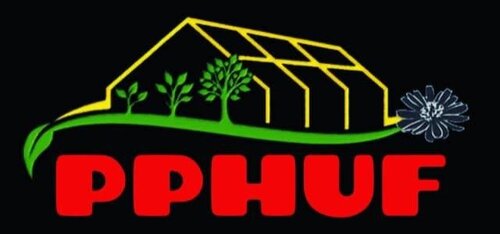
Plantation Park Heights Urban Farm - Interview #1
Plantation Park Heights (PPH) Urban Farm grows food, flowers, and herbs of various varieties for the community and local pantry. PPH workforce now includes 250 elementary school children, 33 teachers, 39 parents and is on a mission to grow 200,000 pounds of food to address the community’s “food desert” designation. PPH organizers will be able to address community need during the pandemic by distributing cooked food and need the construction of a demonstration kitchen to engage residents in the process. The CSRC grant will be used to design and build a demonstration kitchen on site with the dual goal of providing community with prepared food and advance Food Supplement Nutrition Education within the community. The proposed Food Distribution and Outdoor Kitchen project will engage and impact communities associated with 5 schools in the neighborhoods (MLK Elementary, Edgecombe Circle Elementary, Pimlico Elementary/Middle, Creative City Public Charter , Arlington Elementary). All programming will be coordinated with support Park Heights Renaissance Community Education Outreach Team and the school Principals. Dr. Shauna Henley of University of Maryland Extension, Baltimore County, will join as consumer food safety specialist. -
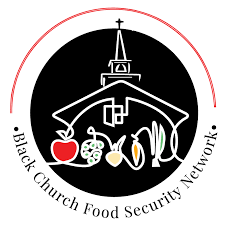
Black Church Food Security Network, Interview #2
The Black Church Food Security Network (BCFSN) was founded in 2015 and specializes in recruiting, organizing, and mobilizing African American congregations around food system initiatives, environmental conservation, and agricultural projects. We utilize an asset-based community development model that helps churches leverage and maximize their existing resources for community food security. In 2017, we partnered with Northside Baptist Church in north Baltimore to establish a community garden which featured five raised beds. Now, we’re taking another step with them to transform 5-acres of their underutilized land into North Star Farm, an urban teaching farm that will support youth, neighbors, and others in the farm and faith communities. During enslavement of Africans in this country, the "north star" figured prominently in guiding runaway enslaved people toward freedom. Additionally, Frederick Douglass published an anti-slavery newspaper called "The North Star" from 1847 - 1851. We believe that North Star Farm can honor this history by pointing the way to freedom through food, autonomy, and communal self-determination. The farm will serve as a fresh food hub and food processing site. The food grown at the farm will be processed and transported to other BCFSN food hubs across Baltimore City for distribution at Soil to Sanctuary markets. The CSRC grant will support the establishment of North Star Farm. The North Star Farm organized by the BCFSN will serve as a community food anchor by increasing food security especially to the population most directly and disproportionately impacted. The farm will be in a unique position to offer experiential learning opportunities with youth in the district while simultaneously advancing community-resilience. -

Plantation Park Heights Urban Farm - Interview#2
Plantation Park Heights (PPH) Urban Farm grows food, flowers, and herbs of various varieties for the community and local pantry. PPH workforce now includes 250 elementary school children, 33 teachers, 39 parents and is on a mission to grow 200,000 pounds of food to address the community’s “food desert” designation. PPH organizers will be able to address community need during the pandemic by distributing cooked food and need the construction of a demonstration kitchen to engage residents in the process. The CSRC grant will be used to design and build a demonstration kitchen on site with the dual goal of providing community with prepared food and advance Food Supplement Nutrition Education within the community. The proposed Food Distribution and Outdoor Kitchen project will engage and impact communities associated with 5 schools in the neighborhoods (MLK Elementary, Edgecombe Circle Elementary, Pimlico Elementary/Middle, Creative City Public Charter , Arlington Elementary). All programming will be coordinated with support Park Heights Renaissance Community Education Outreach Team and the school Principals. Dr. Shauna Henley of University of Maryland Extension, Baltimore County, will join as consumer food safety specialist. -

Jews United for Justice, Interview #2
The Baltimore chapter of Jews United for Justice, (JUFJ) is a grassroots community that seeks to repair the world by working locally for social, racial, and economic justice. A housing crisis in on the horizon. In this moment of uncertainty, it is critical to make sure our Baltimore City government protects its most vulnerable residents. During this crisis JUFJ, which organizes Jews around local policy issues, is mobilizing our community and using our power to amplify the voices and needs of those most directly impacted by injustice. JUFJ continues to organize for valuable housing protections. With our partners, we won an eviction moratorium to last until 90 days after the crisis. We are working to extend that. Our coalition is also advocated for late fees cancellations, rent rates to be frozen, and for additional money for rental assistance from the state and city government. Thanks in part to our advocacy, 300 of 700 people in the Baltimore shelter system are in hotels. We continue to work with our partners to get everyone using the shelter system into safe housing now. The CSRC grant will help support our efforts to bring about a more just housing system in Baltimore. Additionally, we will partner with the CSRC by providing an internship opportunity for 1-2 Morgan students to work collaboratively with our organization and with our partners: the Public Justice Center to learn about professional careers in organizing, advocacy, and legal support as interconnected activities. -

Pro -Bono Resource Center of Maryland, Interview#1
The Pro Bono Resource Center of Maryland (PBRC) is Maryland’s statewide clearinghouse for legal professionals dedicated to offering free civil legal help to the most vulnerable and disenfranchised members of the community. This grant will help provide equal access to justice for tenants through PBRC’s Tenant Volunteer Lawyer of the Day (TVLD) program in Baltimore City Rent Court, including community outreach to educate tenants on their rights and defenses in a Failure to Pay Rent action, and information regarding programs that can help them to remain in their homes. This enhanced information for tenants is greatly needed in a COVID-19 environment. -
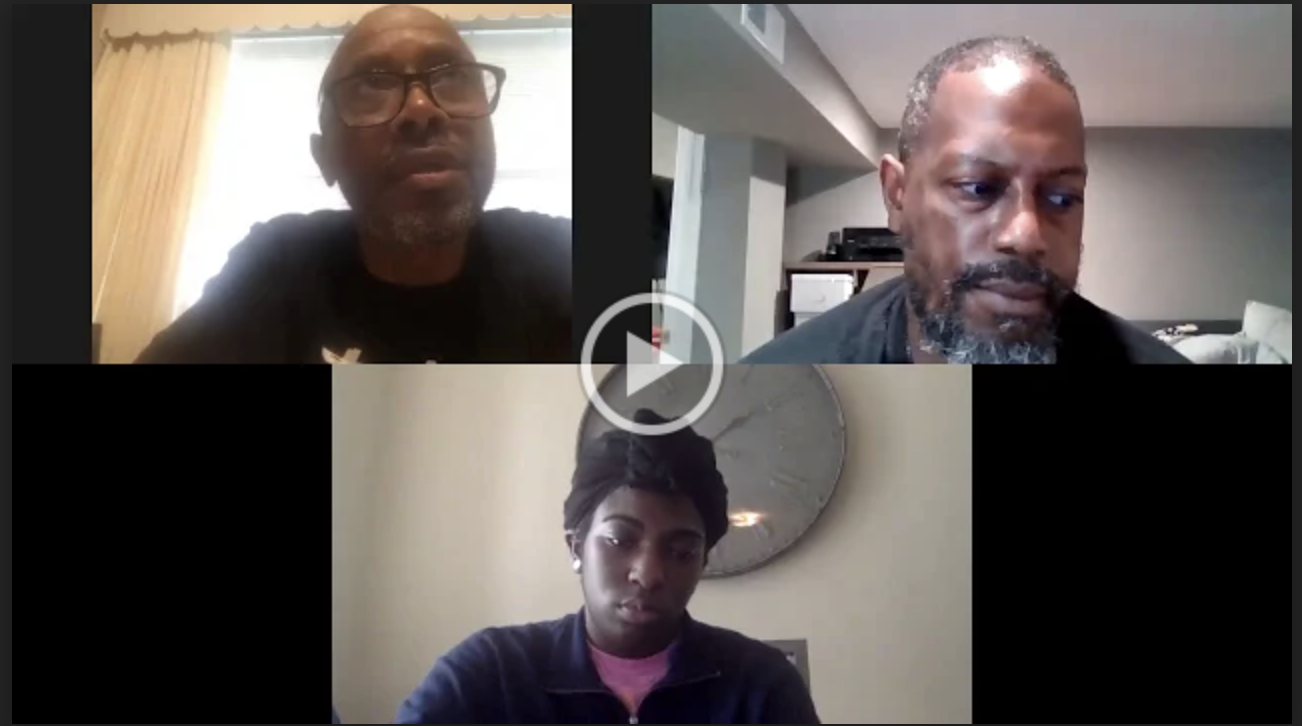
Muslim Community Cultural Center - Interview 1
The Muslim Community Cultural Center of Baltimore (MCCCB) was established in 1990 at 3401 West North Avenue in Leakin Park, it is associated with the original Muslim Community that began in Baltimore in 1947. Their mission is to provide spiritual, cultural, educational and social resources to the Greater Baltimore Metropolitan Area and establish a vibrant community in the Greater Walbrook Neighborhood. The CSRC grant will help support repairs to the MCCB building in order to maintain their social service programs during the pandemic. -
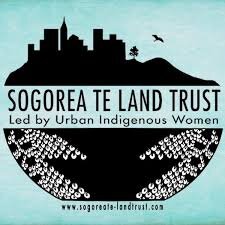
Sogerea Te Land Trust - Interview 1
The Sogorea Te’ Land Trust is an urban Indigenous women-led land trust based in the San Francisco Bay Area that returns Indigenous land to Indigenous people. It was founded in 2012 with the goals of returning traditionally Chochenyo and Karkin lands in the San Francisco Bay Area to Indigenous stewardship and cultivating more active, reciprocal relationships with the land. Through the practices of rematriation, cultural revitalization, and land restoration, Sogorea Te’ calls on native and non-native peoples to heal and transform the legacies of colonization, genocide, and patriarchy and to do the work our ancestors and future generations are calling us to do. The CSRC grant will be used to expand food production and distribution for members of urban Indigenous communities who have been affected by COVID-19. -
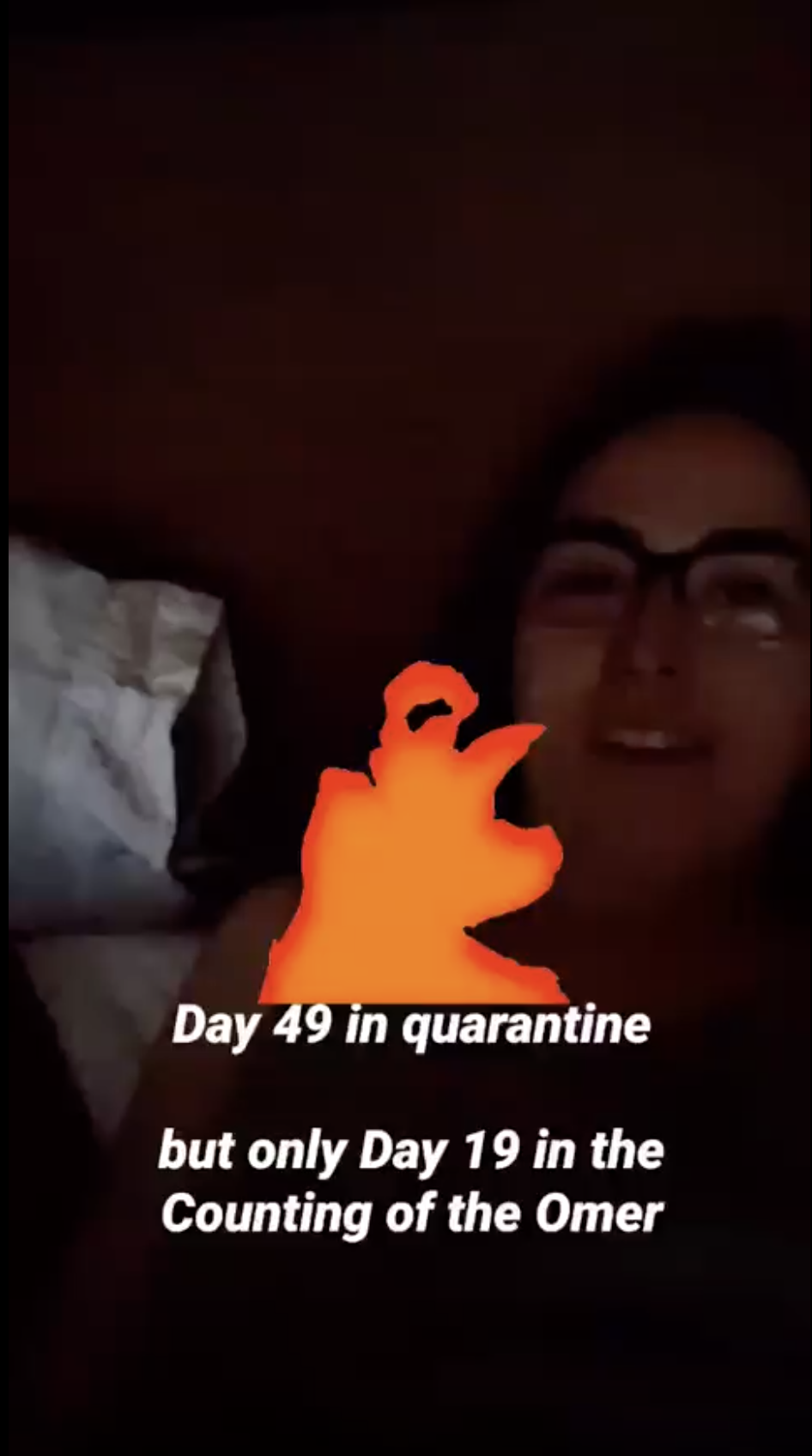
Counting of the Omer
Early in the pandemic, we thought it was funny to count the Omer versus the days we had been in quarantine, but that no longer became funny as the "two-week quarantine" dragged on indefinitely. -

Rector's Reflections on Easter from St. James Episcopal Church
Message from Rev. Meredith to her congregation on Easter. -
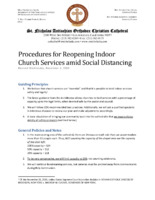
Procedures for Reopening Indoor Church Services amid Social Distancing from St. Nicholas Antiochian Orthodox Christian Cathedral in Los Angeles, California
Revised as of December 2, 2020, these are the guidelines that St. Nicholas Antiochian Orthodox Cathedral is following to help keep their congregation safe. -
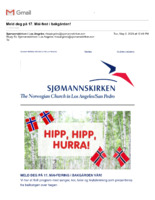
Constitution Day newsletter from Norwegian Church
Constitution Day (Norway's national day) celebration and a drive-in service from Norwegian Seamen's Church in Los Angeles. I'm not Christian, but we go to that church to watch Israel compete in Eurovision every May since 2016, so that's why I get their newsletter.